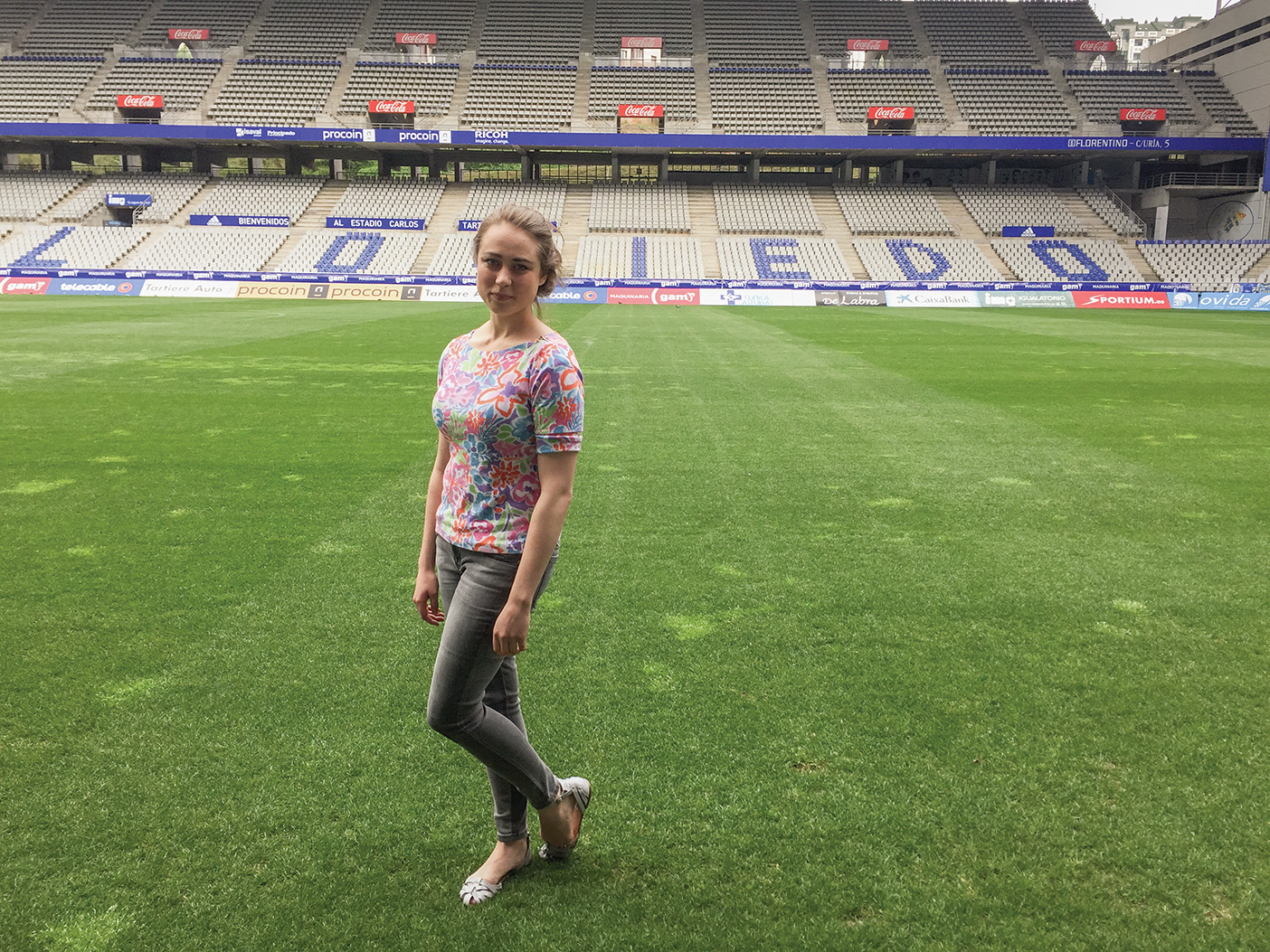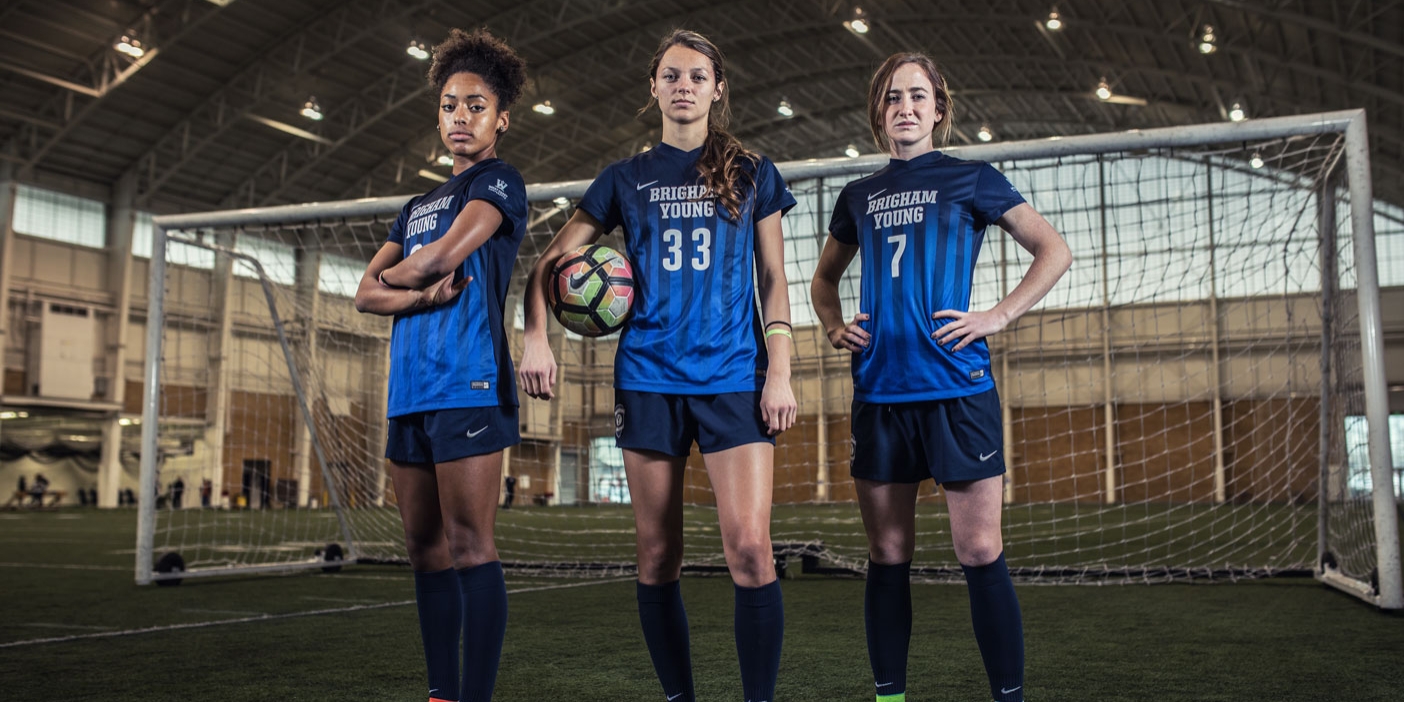
Think of controlled chaos: the setting is a busy press conference in Spain for one of the nation’s best-loved soccer teams. A group rushes to set up the room, the press manager runs around coordinating interviews, and one American intern tries to translate it all into English for fans around the world. “Some days it was really stressful,” says Mallory C. Stack (’18), a business and Spanish double major who spent six weeks interning for Spanish pro soccer club Real Oviedo.
Stack helped with the team’s English social media channels (222K followers on Twitter and 170K on Facebook), translated at least 14 articles per week into English, gave tours of the soccer museum, and attended games and events. Stack became part of Real Oviedo’s passionate fan base and plans on returning to Spain to support the team. “They’ve already told me I’d better come back next season,” Stack says.
Stack’s internship came through, of all things, family history. In 2005 BYU Spanish associate professor David P. Laraway (BA ’92, MA ’94) was doing genealogy work and discovered family members living in Basque country. When he visited Spain in 2016, he met up with a distant cousin who mentioned another cousin, Nestor Susaeta, who played for Real Oviedo.
So Laraway took a trip to meet his famous cousin. While at the club he met Miguel Sanz Ovies, the director of social affairs for Real Oviedo, and created an internship for BYU students. “It’s a plug for exploring your family-history work,” Laraway says. “You never know when some sort of opportunity will come out of it.” The internship is one of many opportunities in Spain for BYU students, including ones at the Prado Museum and with the Spanish national government.
Stack played an essential role in communicating to Real Oviedo’s shareholders in more than 150 countries, and translating press releases into English was key. Early on, Stack noticed the Spanish journalism style was more complex than the style used in the United States—it was an older, more formal Spanish. She advised Sanz to tone down the style in order to better engage the club’s fans, many of whom speak English as a second language and don’t speak Spanish at all. Working with Sanz, she adapted the translation style to mirror English journalistic style. “She has left a great impression on the individuals she worked with at Real Oviedo and has set the bar high for BYU students that come in the future,” Sanz says.
While it was easy to get caught up in the work, Stack found the friendships and connections she made in Spain to be the most valuable. As she worked with the Real Oviedo players and helped establish relationships with fans, she started contemplating a different future for herself. “I wasn’t even thinking about professional sports as a career path, and now I’m really looking into that,” Stack says.












